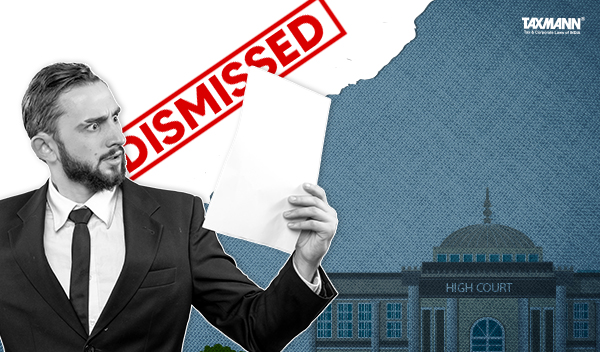HC Dismissed Writ Against Best Judgment Assessment Order Since There Was No Violation of Principles of Natural Justice
- Blog|News|GST & Customs|
- 2 Min Read
- By Taxmann
- |
- Last Updated on 27 April, 2024

Case Details: Ashok Varandani v. Central Board of Indirect Taxes and Customs, Jaipur - [2024] 160 taxmann.com 616 (Rajasthan)
Judiciary and Counsel Details
-
- Manindra Mohan Shrivastava, CJ. & Bhuwan Goyal, J.
- Anurag Kalavatiya for the Petitioner.
- Kinshuk Jain, Jai Upadhyay & Sourabh Jain for the Respondent.
Facts of the Case
The petitioner was engaged in the business of trading of jewellery. The department issued a notice to file GSTR-3B return for the month of August, 2023. However, the petitioner did not file return within the stipulated period and the department proceeded to make best judgment assessment under Section 62 of the CGST Act, 2017.
Thereafter, the petitioner filed writ petition against the best judgment assessment order and contended that assessment was made without collecting necessary information and without affording any opportunity of hearing. It also submitted that the return was filed belatedly due to financial constraints and therefore, best judgment assessment should be withdrawn.
High Court Held
The Honorable High Court noted that the petitioner did not even file appeal against the best judgment assessment order and now challenged the order through writ petition. The Court further noted that the petitioner can’t complain of violation of principles of natural justice since it failed to file return even when notice was issued and the Assessing Authority was left with no option but to proceed to make best judgment assessment.
Therefore, the Court dismissed the writ petition since the petitioner committed default at every stage and the legislative scheme of the CGST Act, 2017 provided remedy of appeal which was not availed by the petitioner.
List of Cases Referred to
-
- Asstt. Commissioner (CT) LTU v. Glaxo Smith Kline Consumer Health Care Ltd. [2020] 116 taxmann.com 417/2020 (36) G.S.T.L. 305 (SC) (para 6)
- Comfort Shoe Components v. Asstt. Commissioner, Ambur Vellore [W.P. Nos. 34770, 34774 & 34777 of 2023, dated 14-12-2023] (para 11).
Disclaimer: The content/information published on the website is only for general information of the user and shall not be construed as legal advice. While the Taxmann has exercised reasonable efforts to ensure the veracity of information/content published, Taxmann shall be under no liability in any manner whatsoever for incorrect information, if any.

Taxmann Publications has a dedicated in-house Research & Editorial Team. This team consists of a team of Chartered Accountants, Company Secretaries, and Lawyers. This team works under the guidance and supervision of editor-in-chief Mr Rakesh Bhargava.
The Research and Editorial Team is responsible for developing reliable and accurate content for the readers. The team follows the six-sigma approach to achieve the benchmark of zero error in its publications and research platforms. The team ensures that the following publication guidelines are thoroughly followed while developing the content:
- The statutory material is obtained only from the authorized and reliable sources
- All the latest developments in the judicial and legislative fields are covered
- Prepare the analytical write-ups on current, controversial, and important issues to help the readers to understand the concept and its implications
- Every content published by Taxmann is complete, accurate and lucid
- All evidence-based statements are supported with proper reference to Section, Circular No., Notification No. or citations
- The golden rules of grammar, style and consistency are thoroughly followed
- Font and size that’s easy to read and remain consistent across all imprint and digital publications are applied



 CA | CS | CMA
CA | CS | CMA
